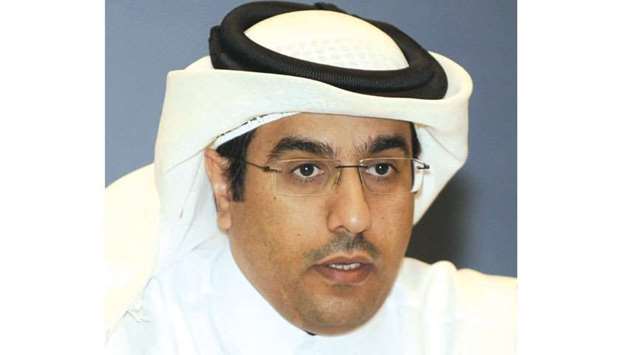Chairman of National Human Rights Committee (NHRC) HE Dr Ali bin Smaikh al-Marri has criticised the siege countries’ attempts to tarnish the image of the committee and to prevent it from revealing their human rights violations.
He called on the Global Alliance of National Human Rights Institutions (GANHRI) to monitor such practices which negatively affect humanitarian organisations, in order to discuss them in the coming meetings.
Al-Marri was speaking on Thursday during a meeting with Chairperson of GANHRI Beate Rudolf, where he gave a timeline of the GCC crisis and the different efforts of the NHRC to defend the rights of the siege victims in accordance to the Paris Principles.
Al-Marri highlighted that the committee has been doing its best to communicate with human rights committees in the siege countries, encouraging them all to co-ordinate to protect human rights and protect the GCC people from being affected by any political differences.
He informed Rudolf that the siege countries, instead of responding to those violations, looked to tarnish the image of NHRC instead and actively look a withdrawal of its international accreditation from other humanitarian institutions and from the UN.
He added that the report of the Office of the United Nations High Commissioner for Human Rights (OHCHR) Technical Mission Team on the impact of the Gulf crisis on human rights came to confirm the findings of the NHRC and document the violations of the siege countries which is carrying out collective punishments against the people.
Al-Marri added that he is ready to attend the next GANHRI meetings to explain the GCC crisis and the NHRC’s efforts to end the siege countries’ violations.
He also invited members of GANHRI to discuss the siege countries’ harassment of the NHRC, and the mechanisms that can be employed to respect the work of national human rights institutions.
Rudolf for her part said she was interested in following up on the developments of the siege crisis as well as the efforts of NHRC.
She added that the German Institute for Human Rights as well as the alliance are ready to increase co-operation with the committee in many fields, particularly exchanging expertise in promoting a culture of human rights and the importance of defending it.
The NHRC chief also held a session with members of the Bundestag, where he briefed them on the details of the report of the technical mission of the United Nations High Commissioner for Human Rights (OHCHR) and its conclusions.
He stressed that the report of the UN mission confirmed the report of the NHRC and the reports of international human rights organisations.
Al-Marri called on the Bundestag to send an official mission to Doha, in order to identify the repercussions of the ongoing siege on Qatar and the serious violations suffered by thousands of citizens and residents in Qatar and the siege countries.
He noted that OHCHR’s report confirmed that what the NHRC talked about was not allegations, as alleged by the siege countries but violations, punitive and arbitrary measures violated the rights of citizens and residents in Qatar and the siege countries.
He pointed out that the siege countries are continuing to impose harsh collective punishment against the peoples, not mindful of all international appeals of governments and human rights organisations demanding an immediate end to the siege.
Al-Marri noted that the siege countries launched a scathing attack against well-known human rights organisations, such as Amnesty International and Human Rights Watch, accusing them of bias towards Qatar.
He added the siege countries did not find it difficult to continue in the same arbitrary manner, to the point of questioning the credibility of OHCHR, accusing it of being biased towards the State of Qatar in a manner that reflects the approach of the siege countries in defying the international community, and not respecting international laws and charters of international organisations.
He added that in face of this arbitrary behaviour of the siege countries, the NHRC calls upon the UN and the world to act immediately to defend human rights instruments and to impose strict measures against anyone who attempts to violate human rights and international law, including pressure on the siege countries in the UN’s General Assembly and the Human Rights Council to push them to respect and implement their human rights conventions and to ensure the lifting of injustice siege of its victims.
He appealed to members of the Bundestag to intensify their actions at the level of the European Parliament and the Inter-Parliamentary Union to make the voice of the victims heard.
He called on the two bodies to give the issue of human rights during the siege crisis, the highest priority, and put it on the agenda of the relations of the European Union (EU) and the siege countries, through the requirement to comply with human rights standards, as a top priority precedes any agreements or political or economic relations linking the siege countries with their EU counterparts, as provided for in EU charters.
He stressed his readiness to attend a hearing in the Bundestag at the earliest opportunity, and open a discussion with its members on the repercussions of the Gulf crisis on human rights, and the risks it poses to the security of the region and its threats to international peace and security.

HE Dr Ali bin Smaikh al-Marri
